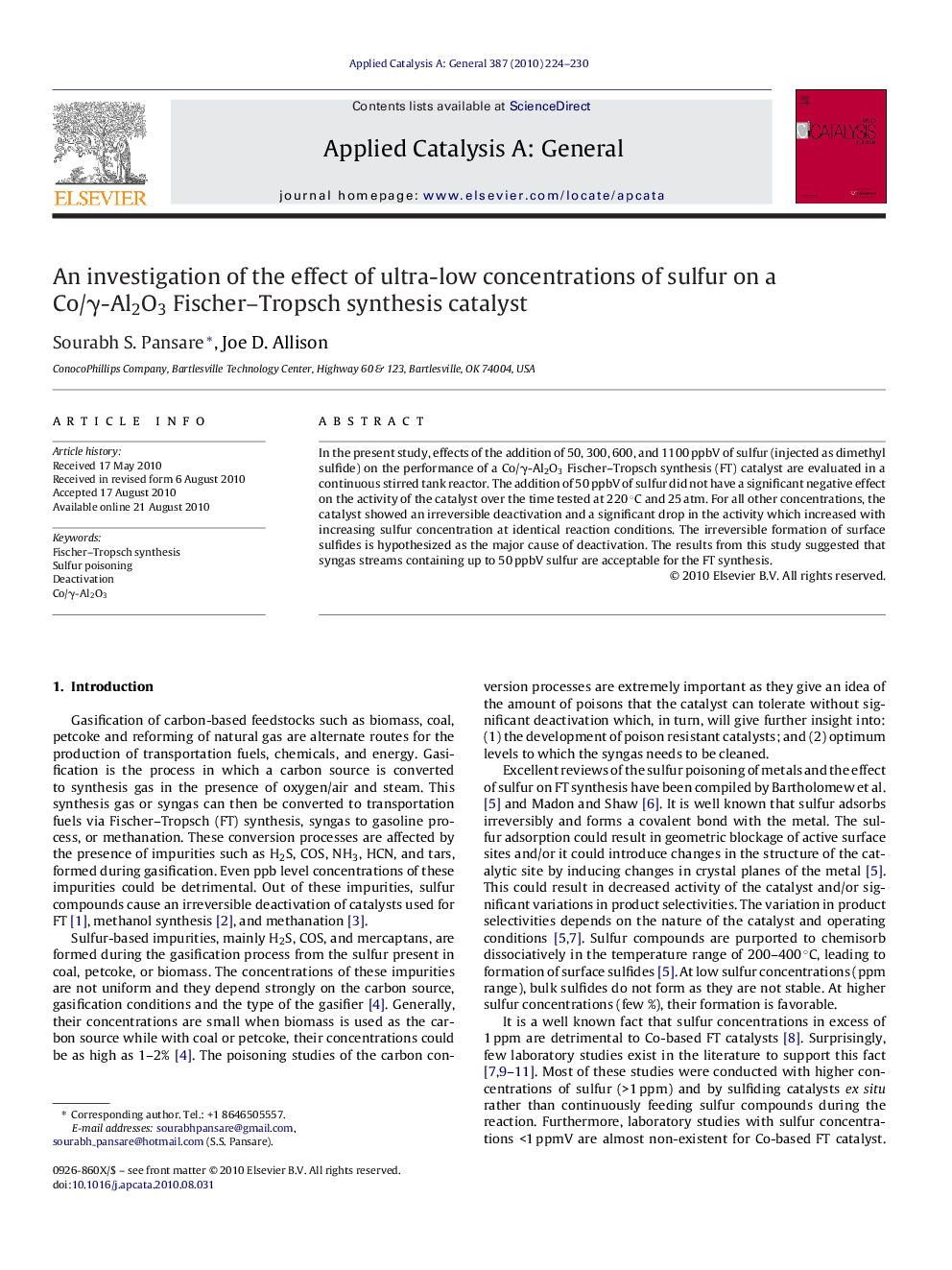| Article ID | Journal | Published Year | Pages | File Type |
|---|---|---|---|---|
| 41807 | Applied Catalysis A: General | 2010 | 7 Pages |
In the present study, effects of the addition of 50, 300, 600, and 1100 ppbV of sulfur (injected as dimethyl sulfide) on the performance of a Co/γ-Al2O3 Fischer–Tropsch synthesis (FT) catalyst are evaluated in a continuous stirred tank reactor. The addition of 50 ppbV of sulfur did not have a significant negative effect on the activity of the catalyst over the time tested at 220 °C and 25 atm. For all other concentrations, the catalyst showed an irreversible deactivation and a significant drop in the activity which increased with increasing sulfur concentration at identical reaction conditions. The irreversible formation of surface sulfides is hypothesized as the major cause of deactivation. The results from this study suggested that syngas streams containing up to 50 ppbV sulfur are acceptable for the FT synthesis.
Graphical abstractFigure optionsDownload full-size imageDownload high-quality image (67 K)Download as PowerPoint slideResearch highlights▶ Effects of ultra-low concentrations of sulfur on a FT catalyst are investigated. ▶ Sulfur concentrations below 300 ppbV are desirable for FT catalyst stability. ▶ Sulfur concentrations above 300 ppbV results in significant catalyst deactivation. ▶ Formation of surface sulfides is hypothesized as the cause of deactivation.
